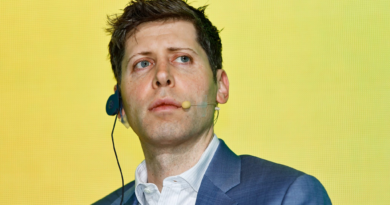European regulators agree to landmark regulation of AI tools like ChatGPT in what is among the world's first efforts to rein in the cutting-edge tech
The European Union reached a hard-fought deal on what is poised to become the most comprehensive regulation of artificial intelligence in the western world.
Thierry Breton, the bloc’s internal market chief, said the deal strikes a balance between fostering innovation and protecting the rights of people and companies.
“We spent a lot of time on finding the right balance between making the most of AI potential to support law enforcement while protecting our citizens’ fundamental rights,” he said early Saturday in a statement. “We do not want any mass surveillance in Europe.”
After more than 33 hours of negotiations this week, delegates from the European Commission, the European Parliament and 27 member countries agreed to a set of controls for generative artificial intelligence tools such as OpenAI Inc.’s ChatGPT and Google’s Bard — the kind capable of producing content on command.
The negotiators agreed to allow live scanning of faces, but with safeguards and exemptions, Breton said. The deal also would prohibit biometric scanning that categorizes people by sensitive characteristics, such as political or religious beliefs, sexual orientation or race.
The draft legislation still needs to be formally approved by EU member states and the parliament. But the deal marks a critical step toward landmark AI policy that will — in the absence of any meaningful action by US Congress — set the tone for the regulation of the fast-developing technology. The EU is aiming to enact the first firm guardrails on AI outside of Asia.
Policymakers have been working for months to finalize the language in the AI Act and get it passed before European elections in June usher in a new commission and parliament that could force more changes and stall efforts.
The decision was hammered out at a session on Friday following a nearly 24 hour marathon that stretched from Wednesday to Thursday. During the first meeting, some negotiators dozed off in the hall as others debated the most sensitive topic of restricting live facial scanning technology in public before finally agreeing to break.
The difficult discussions underscore how contentious the debate over regulating AI has become, dividing world leaders and tech executives alike as generative tools continue explode in popularity. The EU — like other governments including the US and UK — has struggled to find a balance between the need to protect its own AI startups, such as France’s Mistral AI and Germany’s Aleph Alpha, against potential societal risks.
That proved to be a key sticking point in negotiations, with some countries including France and Germany opposing rules that they said would unnecessarily handicap local companies.
A number of details will still be worked out by civil servants in the weeks to come, but negotiators largely agreed to place rules around generative AI that include basic transparency requirements for any developer of a large language model. Those that pose a systemic risk will need to sign onto a voluntary code of conduct to work with the commission to mitigate risks. The plan is similar to the EU’s content moderation rules, the Digital Services Act.
The most tricky point came down to how far to restrict live biometric identification tools. The parliament voted for a complete ban last spring, however, EU countries pushed for exemptions for national security and law enforcement. In the end, the two sides agreed to limit the use of the technology in public spaces with more guardrails.




